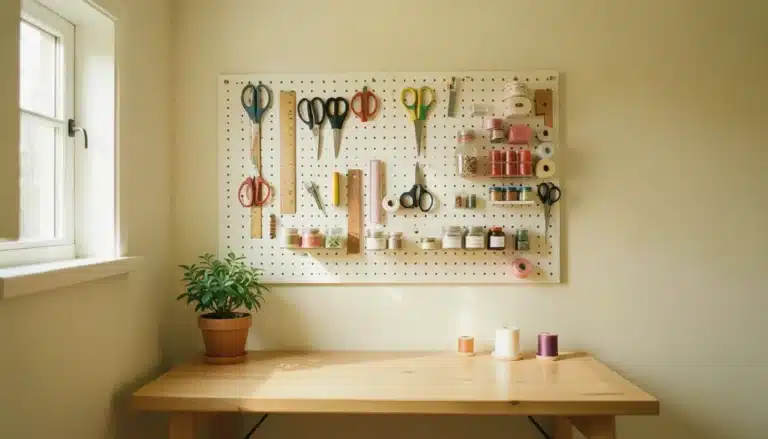When you’re juggling work, kids, meals, and everyday tasks, health can start to feel like a luxury. It’s easy to think of wellness as something that requires extra time or perfect conditions. But for working parents, that’s rarely realistic. A healthy lifestyle doesn’t need to look polished—it just needs to work within the day-to-day rhythm of life at home and at work.
The version of healthy that fits a busy household often looks like small routines, repeatable meals, and moments of rest that come in quick bursts. It’s not about checking everything off a list. It’s about building a setup that supports the basics and doesn’t add more pressure to already full days. These everyday choices can shape what health looks like in a way that feels steady, even when the calendar is packed.
Simple, Repeatable Meals
Planning complex meals for the whole family every day is rarely possible. Between getting kids out the door, managing work tasks, and keeping up with chores, there’s usually limited time to cook. That’s why sticking to simple, repeatable meals can help. These meals don’t need to be new or exciting—they just need to be things the family will eat and that you can prepare without much thought.
Some parents also like to add small, consistent routines alongside their meals. This might include using a reliable supplement as part of the day-to-day. Many turn to trusted options like those offered by USANA Health Sciences, which can be paired with everyday meals as part of a simple routine. These additions are often chosen for their simplicity—they don’t interrupt the flow of daily food.
Breaks Still Count
It’s common for parents to move through the day without stopping. Work might spill into lunch, chores might stretch into the evening, and the idea of a break feels like something that can only happen when everything is finished. But the to-do list is rarely empty, and waiting for a pause that never comes just leaves you drained.
Taking small breaks, even five minutes to step outside, sit down, or just breathe without a screen, can shift the pace. Breaks that happen without needing a reason help reset the tone of the day, and they can fit into nearly any schedule, even when things feel full.
Smart Screen Choices

Screens are part of modern life for both kids and adults. For parents, managing screen time often means setting rules for children, but it can also mean rethinking how much time you’re spending in front of a screen. Work, messages, and scrolling often stretch into family time or overlap with meals, turning personal time into more digital time.
A healthy balance doesn’t mean cutting out screens altogether. It just means choosing when they work best. You might decide to keep phones off the table during dinner or leave laptops shut after a certain hour.
Personal Time, Reframed
Parents often hear how important it is to take time for themselves. That sounds good in theory, but finding an hour to be alone without interruption isn’t always possible. The good news is that personal time doesn’t have to mean being alone. It can just mean doing something that feels like yours, even if others are around.
Maybe it’s having your playlist while making dinner, reading a few pages of a book before bed, or drinking coffee without answering a question. These things don’t take much time, but they remind you that your needs matter, too.
Shared Routines
When everyone in the house has different schedules and needs, routines can feel impossible to keep. But routines don’t have to be perfect to be helpful. Even just having a shared rhythm in the morning or a set time for winding down at night can bring a little more steadiness to the day.
If kids are getting ready for bed, maybe that’s when you tidy up or prep lunches. If mornings are always chaotic, laying out clothes and breakfast items the night before can take some pressure off.
Drop Comparisons
It’s hard not to look around and wonder how other parents are managing everything. Social media, conversations at school pickup, or even a quick scroll through wellness blogs can make it seem like everyone else has it together. That comparison can weigh you down, especially when you’re doing your best.
What works in one household might not apply to yours. Letting go of the pressure to match someone else’s setup makes more room to figure out what fits your actual life.
Self-Care Kids Can See
When kids see you eating meals, stepping away from your computer, or going to bed at a consistent time, those actions stick with them. They don’t need long talks or explanations. They just need to see what it looks like to care for yourself in everyday moments.
You don’t need a big routine or a dramatic break. Something as small as taking a short walk, listening to music you like, or putting your phone away at dinner shows that daily care is part of your life. These choices create quiet examples that shape how kids think about taking care of themselves later on.
Energy Over Output
The habit of measuring your day by what you finish is hard to shake. But health doesn’t come from checking off the most tasks. It comes from having enough left in the tank for what matters—like being present with your family, feeling grounded in your routine, or just not being completely wiped out.
That’s why it helps to pay attention to how you feel as the day goes on. Maybe a shorter to-do list gives you more room to move through the day without rushing. Maybe taking a break midday helps you feel better in the evening. The goal isn’t to get more done. It’s to not feel like you’re running on empty by the time the day ends.
Saying No
Parents are often asked to do more—more work, more school involvement, more support for others. Saying yes all the time can lead to full days that don’t leave much room for your own needs. Saying no isn’t about being unavailable. It’s about deciding where your energy goes.
It might mean skipping an extra commitment, closing your calendar early, or not replying to a message right away. These choices give you more space for what matters most to you and your family.
Healthy living as a working parent isn’t about doing everything right. It’s about finding the routines and choices that make daily life feel manageable. When the focus is on what fits, health becomes something you can actually keep up with.
















